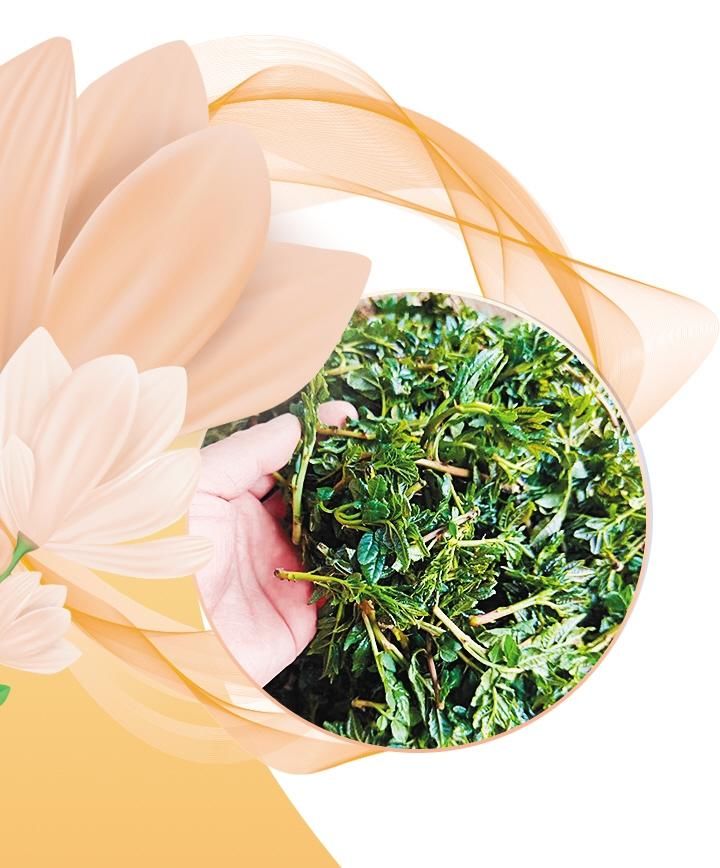
Fresh pepper buds picked by villagers in Guohe Township, Wudu District, Longnan City, Gansu Province. Photo by Economic Daily reporter Zhao Mei
In March and April, it is a good time to eat wild vegetables. Wild vegetables such as acacia, dandelion, bitter herbs, and purslane have appeared in the market. In Longnan City, Gansu Province, which is rich in Chinese prickly ash, there is also a unique wild vegetable – prickly ash sprout, which is favored by consumers.
To the Longnan people, the Sichuan pepper buds taste the fragrance and refreshing taste in addition to the big fish and meat, while for the Longnan people outside, the pepper buds eat the long-lasting nostalgia. “Zanthoxylum buds are sterilized by the wind, and I heard from the older generation that they can also treat rheumatoid arthritis!” Li Meizhen, a 74-year-old citizen of Wudu District, Longnan City, goes to the vegetable market to buy some peppercorn buds every year when the pepper buds are on the market. “For 10 yuan for 3 pieces, I can eat two meals.” Li Meizhen said that in the past, in the countryside, she picked the pepper buds by herself. Now that I live in the city, the farmers around the city will pick and sell the prickly ash buds every year, which are very fresh.
The faint aroma of pepper and numbness is not as strong as the numbness of the prickly ash fruit. The prickly ash sprouts are not only the darling of the family table, but also some restaurants, farmhouses and cooperatives are eyeing this wild vegetable.
“After eating big fish and meat, nutritious, delicious and healthy wild vegetables have become the darling on the table of the farmhouse. The pepper buds are green, so the diners can eat them fresh.” Located in Wuxi, Longnan City Wang Xiaowei, the owner of Taohuayuan Farmhouse in Nanshan Park in the metropolitan area, told reporters that in April every year, pepper sprouts become a popular dish in the farmhouse, with sales of 200 to 300 dishes per month.
Different from Wang Xiaowei, Shi Songqing, head of the Wanshanhong Plantation Farmers Professional Cooperative in Wudu District, Longnan City, made a small pepper bud into a “big article”. “We mainly solve the problems of short shelf life, weak taste, and fast discoloration of prickly ash buds through processing, so that they can enter the national market.” Shi Songqing said that in 2017, he established a cooperative to grow olives, prickly ash and other crops. The planting area of prickly ash has 400 acres. mu. Because the prickly ash field is far away from the urban area, the prickly ash buds of the previous pepper farmers were all shot directly into the ground. 10 years ago, someone wanted to buy pepper buds, but it was unsuccessful due to technical processing problems. By chance, he discovered the business opportunity of pepper buds when he contacted a company in Hebei, and hired technical experts to research and develop pepper buds products. At present, he has applied for a trademark and is in the process of applying for various certificates. After the relevant machines are in place, they can be put into production.
“The standard we buy is 10 cm of prickly ash buds. Too long will lignify and damage the prickly ash tree.” Shi Songqing said that picking prickly ash buds is called “pinch buds” in the folk. Dropping the pepper buds in the middle of the crown of the prickly ash tree is good for the growth of prickly ash at the top. If the pepper buds on the top of the tree are knocked off, new branches will be sent out the following year, which will increase the fruiting rate and increase the yield. A prickly ash tree starts from April to May 10th. About 3 crops of pepper buds can be harvested, and the first crop is now being harvested.
“My prickly ash buds sold for more than 2,000 yuan!” said Zhao Bingbing, a villager in Nichizi Village, Yuhuang Township, Wudu District, Longnan City. In the past, prickly ash buds were all knocked into the ground except for their own tastes. , I didn’t expect that so many people like to eat pepper sprouts these days, and they have an extra income. (Economic Daily reporter Zhao Mei)